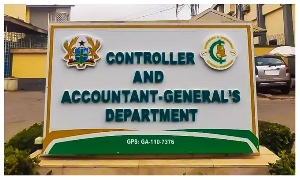Koforidua, July 27, GNA- The Ghana AIDS Commission (GAC), has warned that it would penalize any Organization that misappropriates funds meant for campaigns in reducing the spread and stigma of the HIV/AIDS disease.
Accordingly it has adopted a new strategy in the selection of Non-Governmental Organizations (NGO's) to reduce their number and to give them specific terms of references for their operations under the guidance of the respective Municipal and District Chief Executive. This became known at a pre-implementation meeting with stakeholders including Municipal and District Chief Executive (MDCE'S) on the Multi Sectoral HIV and AIDS Programme (M-SHAP) for the Eastern Region in Koforidua on Monday.
Dr Richard Amenyah, Director of Technical Services of the GAC, said the measures had become necessary because donor funding expended on educational programmes on the disease had not achieved results over the past years.
He indicated that although the prevalence rate had reduced, the many Community Based Organizations (CBOs) that were given funding to implement programmes aimed at reducing the spread of the disease did not meet the intended targets.
He said GAC, as a result, wanted to strengthen the collaboration between the MDCE's and the assemblies to have oversight responsibilities of the implementation of the M-SHAP to achieve value for money and also to satisfy the conditions of donor partners. According to Dr Amenyah one major challenge facing the control programme was the reluctance of the public to test and know their status, adding that only 10 per cent of the population knew their status, which he described as not too good for controlling the spread of the disease. Dr Samuel Ofori, Regional Coordinator of the National AIDS Control Programme (NACP), who gave an overview of the pandemic in the region, said research had shown that illegal mining activities popularly called 'galamsey' around the Akyem areas was contributing to the spread of the disease.
He explained that research found out that because of the profit made from galamsey activities, commercial sex workers from other parts of the country migrate to those areas to engage in their trade thus contributing to the high prevalence rate. Dr Ofori said another observation was the low use of condoms in the region, resulting in reported cases of Sexually Transmitted Diseases (STI's), adding that all health centres in the region last year recorded HIV/AIDS infection cases.
Ms Golda Asante, Regional Focal Person on AIDS, said as part of the strategy and the M-Shap implementation, only four lead organizations, including Ghana Coalition of NGOs in Health, Ghana National Education Campaign Coalition, Drama Network and Theatre for Change had been selected for implementation in the region.
She said the four lead organizations would implement their programmes in five districts, while each district would also be required to select two credible Community Based Organizations (CBOs) totaling about 42 groups.
Ms Asante therefore urged the chief executives to supervise the activities of the groups, and to demand periodic meetings to be able to check and monitor their programmes strictly.
General News of Monday, 27 July 2009
Source: GNA












